Latest news
Search news stories
Enter a keyword to search news.
Australia and its partners in the global trading system, in 2024
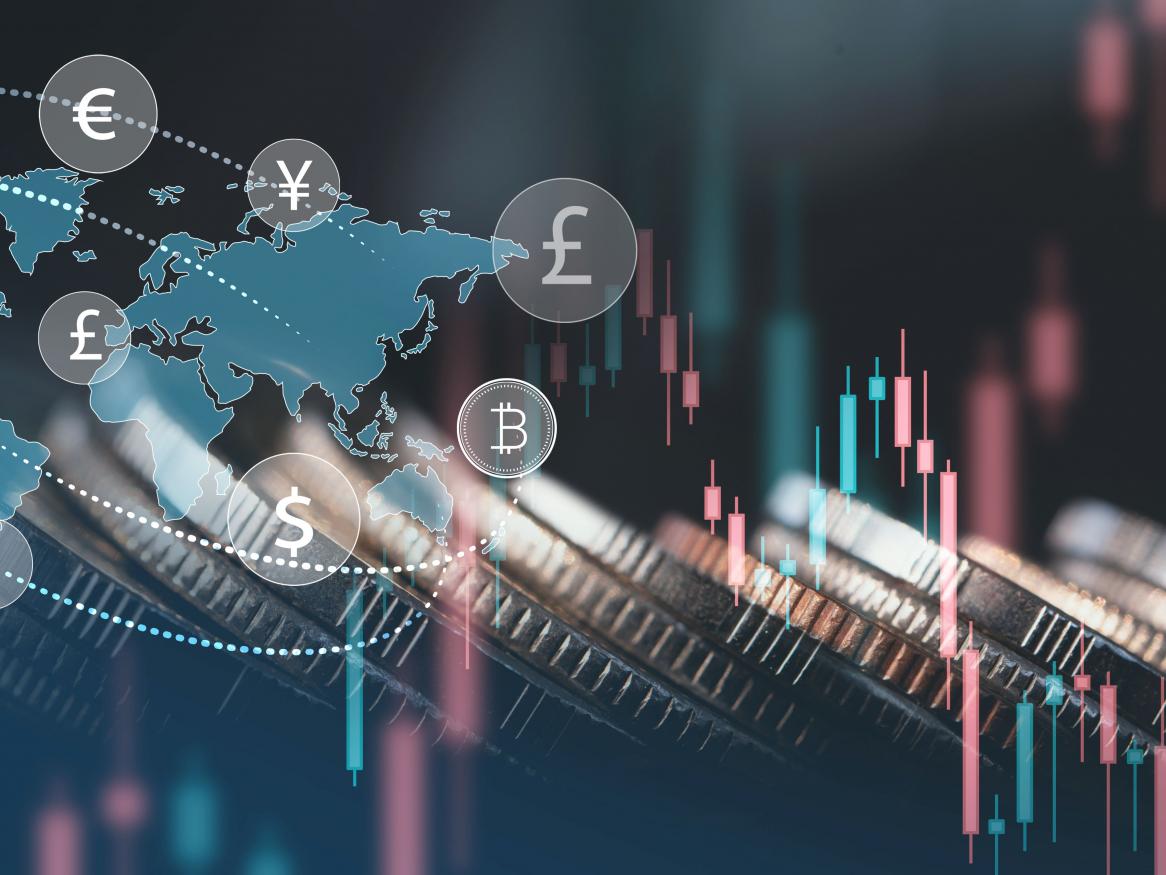
A collection of Opinions - Australia and its partners in the global trading system, in 2024.
With 2024 now in full swing this collection takes stock of key developments in the global trading system likely to shape Australia’s trade policies this year, as well as those of key trading partners. There is much going on in the trade policy world, and a collection such as this cannot do justice to the full complexity. Instead, we asked renowned experts to reflect on topics they think will have an impact this year.
[Read more about Australia and its partners in the global trading system, in 2024 ]
Policy Brief 25: Reforming Special and Differential Treatment for Developing Countries in the WTO

Policy Brief 25: Aniekan Ukpe (Lex Mercatoria Solicitors, Abuja). Aniekan Ukpe is a partner at Lex Mercatoria Solicitors. Clara Weinhardt (Maastricht University). Clara Weinhardt is Assistant Professor in International Relations at Maastricht University.
Traditionally, SDT is envisioned to help developing countries to develop their economies through exports, and to enable them to pursue policy options they consider appropriate for their development. Relying on voluntary graduation and political pressure, however, is less likely to work whenever WTO members seek to renegotiate existing developing country flexibilities.
Seasons Greetings for 2023

The team at the Institute for International Trade would like to thank you for your ongoing support during 2023. Wishing you all a very safe and Happy Festive Season and Happy New Year!
Food, agriculture, and climate at COP28 – and beyond
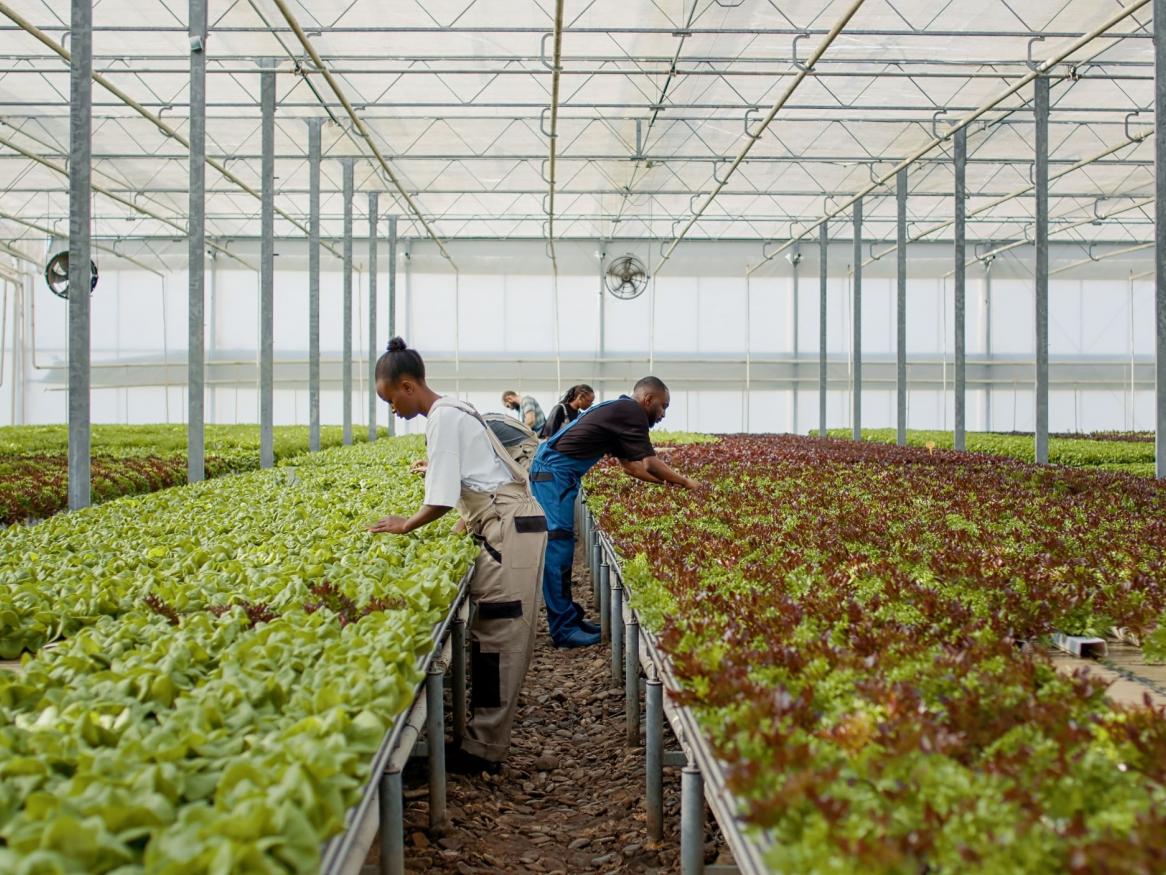
Policy Brief 24: Anthony Cox - Senior Policy Advisor at Ecologic Institute. Ken Ash - Visiting Fellow at the Institute for International Trade, University of Adelaide & Director of Ash Global Insights. COP28 will see a welcome focus on food systems and agriculture with the United Arab Emirates (UAE) Presidency pressing governments to commit to integrating food and agriculture more effectively into their national climate agendas. Our latest policy brief by Anthony Cox and Ken Ash highlights priority areas for the assembling governments to move from political declarations to concrete action.
[Read more about Food, agriculture, and climate at COP28 – and beyond]
2023 Australia-Thailand Economic Engagement Report

This report on the bilateral economic relationship between Australia and Thailand is part of an Australian Government focus to deepen trade and investment with the region in line with the Government’s Southeast Asia Economic Strategy to 2040. It identifies products and sectors where both countries could be trading more with one another, areas where they can cooperate more closely on economic governance, and makes recommendations for strengthening political, institutional and people-to-people ties between the two economies.
[Read more about 2023 Australia-Thailand Economic Engagement Report]
ACITI 2023 Annual Conference
IIT's Professor Peter Draper recently attended and presented at Australian Centre for International Trade and Investment 2023 Annual Conference.
This years focus: Emission, Environment and Energy: impact and implications for Australia's international trade and investment
Trade Policy Podcast: Episode 3 IPEF - The emperor's new clothes or values imperialism?
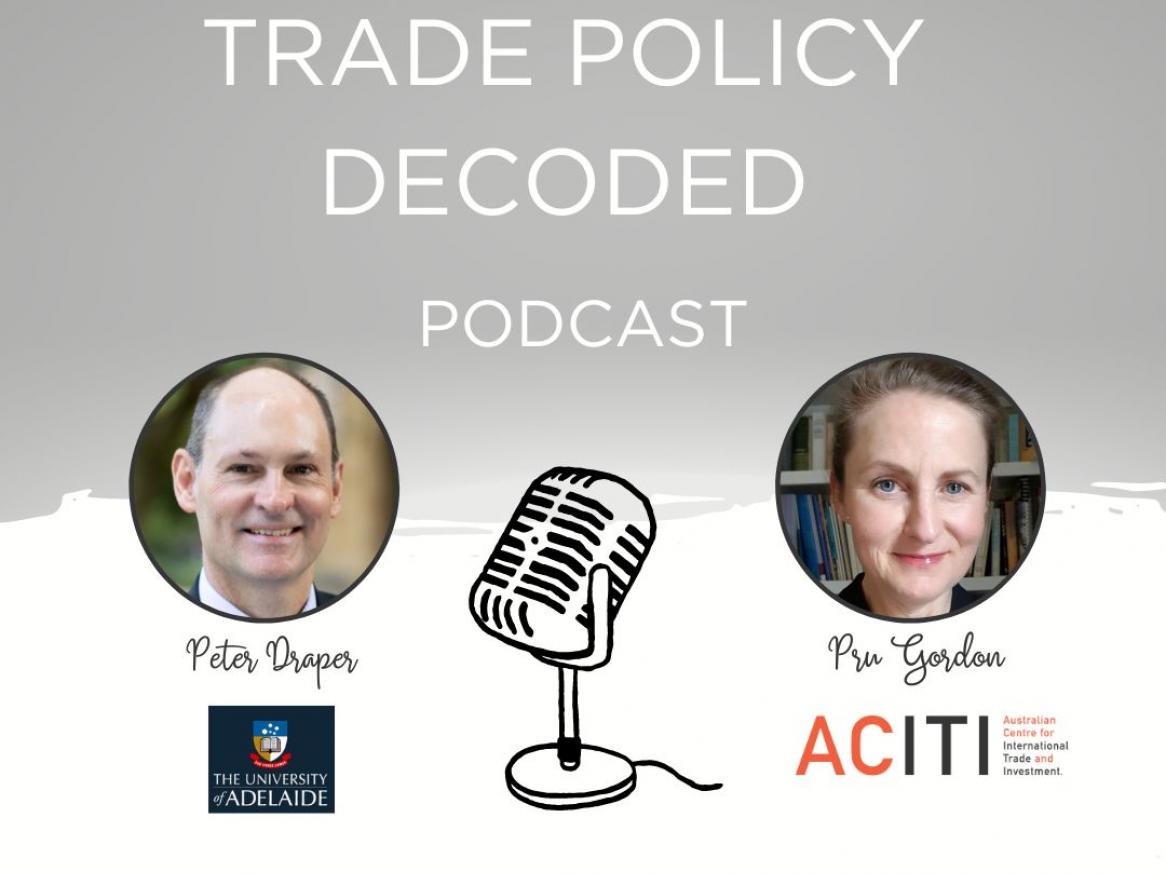
Episode 3 of Trade Policy Decoded is out now! This week, Peter and Pru run the ruler over the Indo-Pacific Economic Framework (IPEF) negotiations and the IPEF Supply Chain agreement. The podcast explores the contrasts in IPEF's 'cooperation' rather than 'commitment' approach, lofty ambitions but loose arrangements, great intentions without binding provisions, and a Supply Chain agreement that could be the emperor's new clothes or values imperialism.
Australia’s New International Development Directions and Implications for Trade in the Pacific

Jim Redden, is an External Trade and Development Advisor to DFAT, Director, Economic Development Services Ltd, and IIT Visiting Fellow. Recently Australian Foreign Minister Penny Wong unveiled the government’s updated international development programme. In this Brief Visiting Fellow Jim Redden charts its contours, with focus on its Aid for Trade dimension in relation to the Pacific. This is particularly relevant to members of the Pacific Agreement on Closer Economic Relations (Plus), which recently came into force and is starting to demonstrate substantial positive impacts. These countries stand to benefit from the variety of trade-related assistance now available under the new development programme.
Whither (not Wither) Multilateralism: Priorities for G7 Trade Ministers
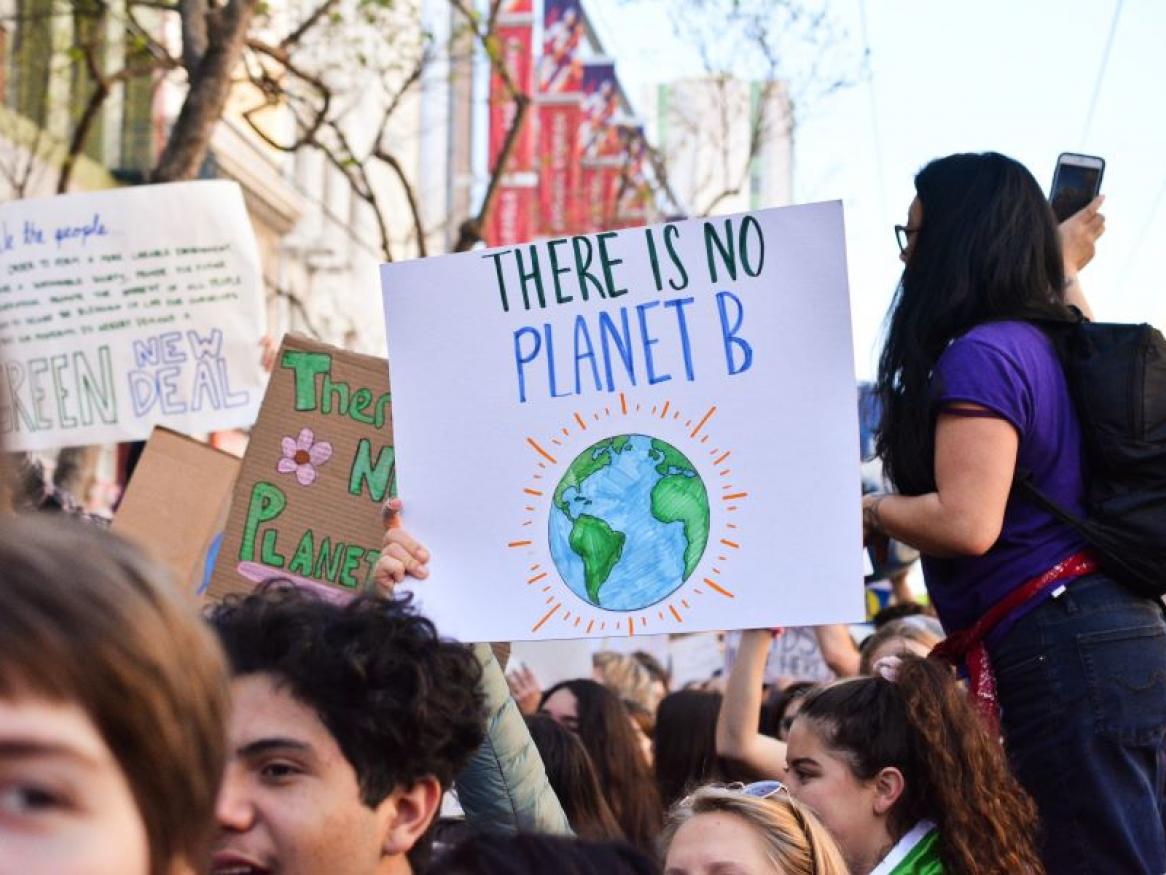
Ken Ash, Visiting Fellow, Institute for International Trade and formerly Director of Trade and Agriculture at the OECD. Is the high point in multilateral trade relations already 30 years in the past? Are notions of international cooperation and mutual benefit relics of an earlier time? Hopefully not, there is still much more to play for. Amidst the visible geopolitical tensions, and what often looks like a blurring of trade, economic, climate, and security interests, there are some encouraging signs recently. This brief considers prior developments that helped shape the nature of the trade policy debate today, offers an admittedly optimistic assessment of a renewed interest by G7 members in international cooperation, and highlights immediate priorities for action by G7 Trade Ministers
[Read more about Whither (not Wither) Multilateralism: Priorities for G7 Trade Ministers]
Much ado about Something? Australia’s Views on IPEF’s Prospects.
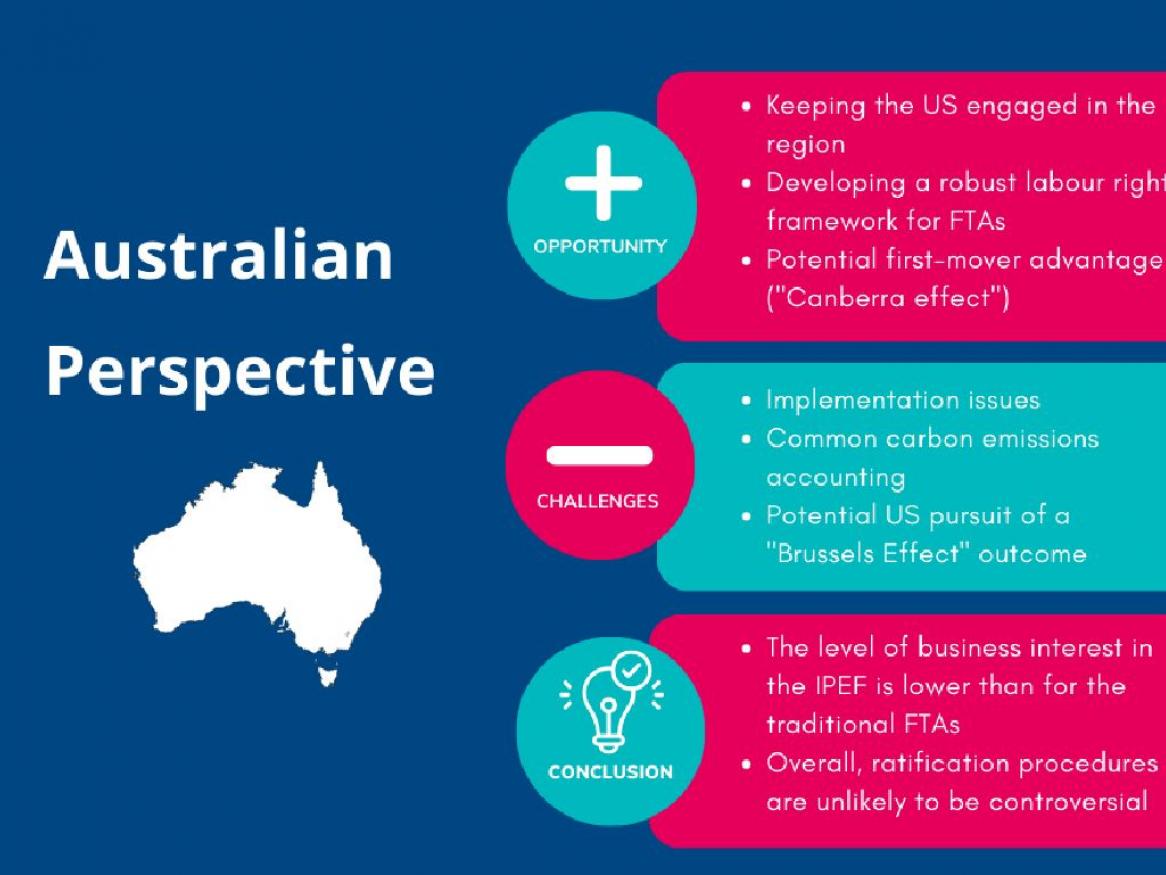
Recently the IPEF’s Pillar 2 text on Supply Chains was released. But what is IPEF, and what does it mean for Australia? In this paper, published by the Konrad Adenauer Stiftung (Tokyo) and NUS’s Institute for South Asian Studies, IIT Executive Director Professor Peter Draper canvasses the issues.
[Read more about Much ado about Something? Australia’s Views on IPEF’s Prospects. ]
This work is licensed under Commons Attribution-NonCommercial-NoDerivatives 4.0 International License.
IIT is a global leader in researching, analysing and commenting on International Trade.
Stay informed about our up-and-coming seminars, events, publications, awards, new projects and collaborations, and other exciting news.
